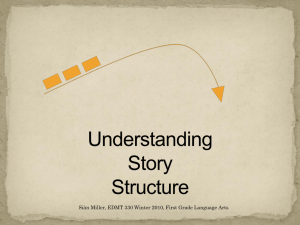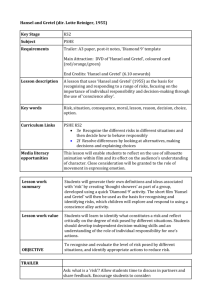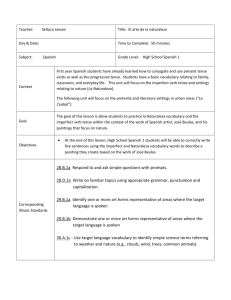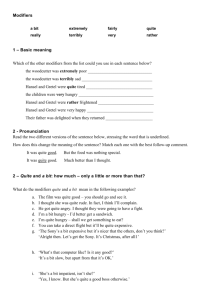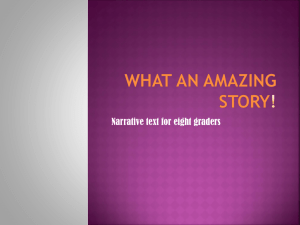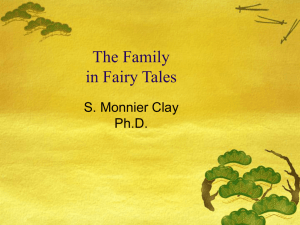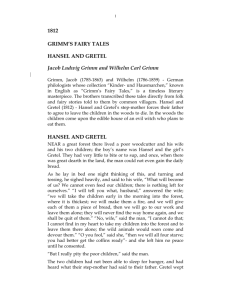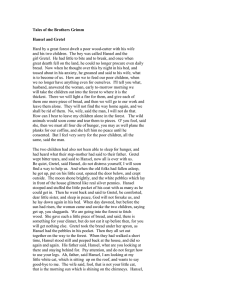Microteaching 1 - La Naturaleza Lesson Plan
advertisement
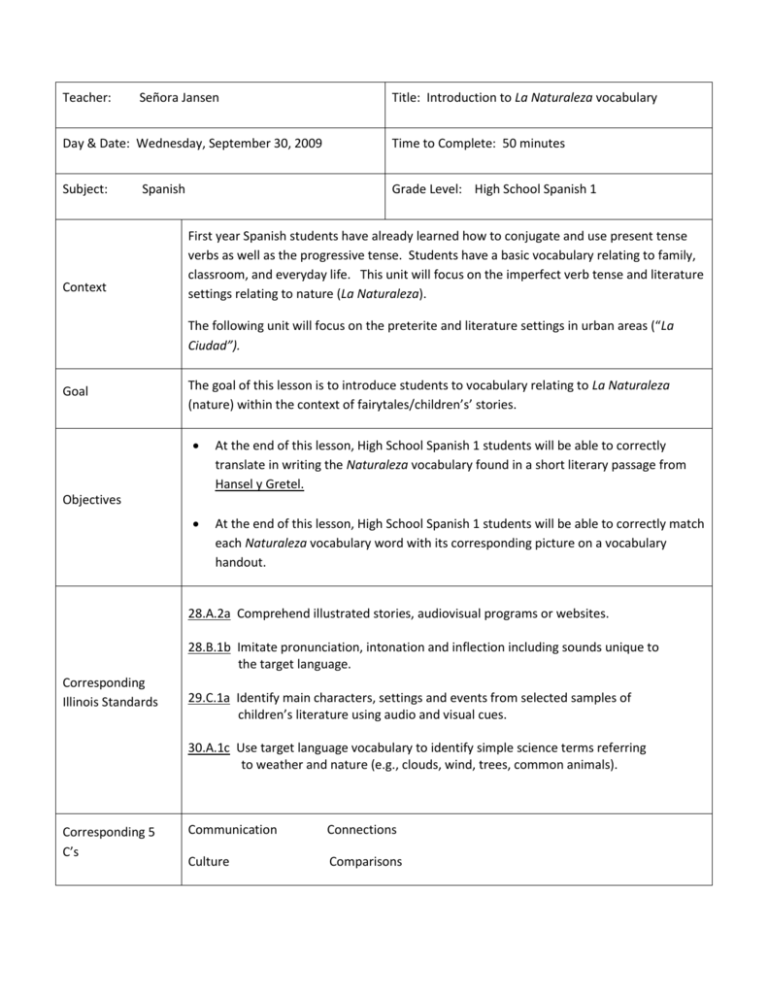
Teacher: Señora Jansen Title: Introduction to La Naturaleza vocabulary Day & Date: Wednesday, September 30, 2009 Time to Complete: 50 minutes Subject: Grade Level: High School Spanish 1 Spanish Context First year Spanish students have already learned how to conjugate and use present tense verbs as well as the progressive tense. Students have a basic vocabulary relating to family, classroom, and everyday life. This unit will focus on the imperfect verb tense and literature settings relating to nature (La Naturaleza). The following unit will focus on the preterite and literature settings in urban areas (“La Ciudad”). Goal The goal of this lesson is to introduce students to vocabulary relating to La Naturaleza (nature) within the context of fairytales/children’s’ stories. At the end of this lesson, High School Spanish 1 students will be able to correctly translate in writing the Naturaleza vocabulary found in a short literary passage from Hansel y Gretel. At the end of this lesson, High School Spanish 1 students will be able to correctly match each Naturaleza vocabulary word with its corresponding picture on a vocabulary handout. Objectives 28.A.2a Comprehend illustrated stories, audiovisual programs or websites. 28.B.1b Imitate pronunciation, intonation and inflection including sounds unique to the target language. Corresponding Illinois Standards 29.C.1a Identify main characters, settings and events from selected samples of children’s literature using audio and visual cues. 30.A.1c Use target language vocabulary to identify simple science terms referring to weather and nature (e.g., clouds, wind, trees, common animals). Corresponding 5 C’s Communication Connections Culture Comparisons Required Materials Cuentos para dormir book La Naturaleza Vocabulary handout Opening Routines and Getting Started Hansel y Gretel handout Display Cuentos para Dormir and Fairy Tales book. Greet students. Ask students to take a minute to think about one or two of their favorite fairy tales and where they take place. Ask several students for fairy tale names and others for locations. (Ex. Snow White – woods) Tell students that we will be beginning a new unit focusing on fairytale literature. We will learn La Naturaleza (nature) vocabulary and the imperfect verb tense. We have already learned family, classroom, household vocabulary, so now we’re going to keep expanding our vocabulary to more interesting topics. Today, we’re going to begin learning La Naturaleza vocabulary by reading and translating a short passage from a fairy tale. Students shouldn’t be nervous; they will be working in groups and only evaluated on correctly translating La Naturaleza vocab. words. (5-10 min) Introduce words and practice pronunciations using pictures. Ask if there are any questions about the vocabulary words. Media #1 (5 min) Show students Cuentos para dormir book. Explain that students will be translating a paragraph from Hansel y Gretel. What does Hansel y Gretel mean in English? (Hansel and Gretel) Where does Hansel y Gretel take place? (el bosque) Give students context for this passage. Explain that all the verbs are in the past tense. Divide students into groups or 2-3. (5 min) Distribute Hansel y Gretel handouts. Ask each group to translate an assigned sentence based on prior knowledge, new vocabulary, and given vocabulary. Ask students to circle any vocabulary words they can identify. Model how to translate the first sentence. Ask groups to read sentences/translations. Discuss as class. Media #2 (book), Media #3 (handout) (5-10 min) Briefly review vocabulary words with PowerPoint. Media #4 (5 min) Congratulate students on success with translating first literary passage. Play “matamoscas” with nature scene power point slide. ¿Dónde está el árbol?, ¿Dónde está el río? (10 min) (Anticipatory Set) Major Activities Closing Routines and Homework (Closure) La Naturaleza powerpoint Assessment Distribute vocabulary handout. Ask students to match vocabulary words with pictures and to then use handout to practice vocabulary words for the next class period. (5 min) Formative - The teacher will collect the students’ literature handouts to verify (for herself – not graded) that the students were able to correctly identify the new vocabulary words. The teacher will also evaluate the students’ translation notes on the literature handout for information to use in planning future lessons. The teacher will also use the students’ homework as formative assessment for planning future lessons. Summative – The teacher will evaluate the students’ homework for vocabulary accurateness and for creativity. Future Classes Vocabulary will be reinforced in future lessons through games like matamoscas, by labeling La Naturaleza vocabulary in pictures of fairy tale settings, by creating written descriptions of fairy tale settings, and by acting out a fairy tale, among other activities. El Tesoro de los Cuentos para Dormir Sources Hansel y Gretel – adapted by Jane Jerrard
